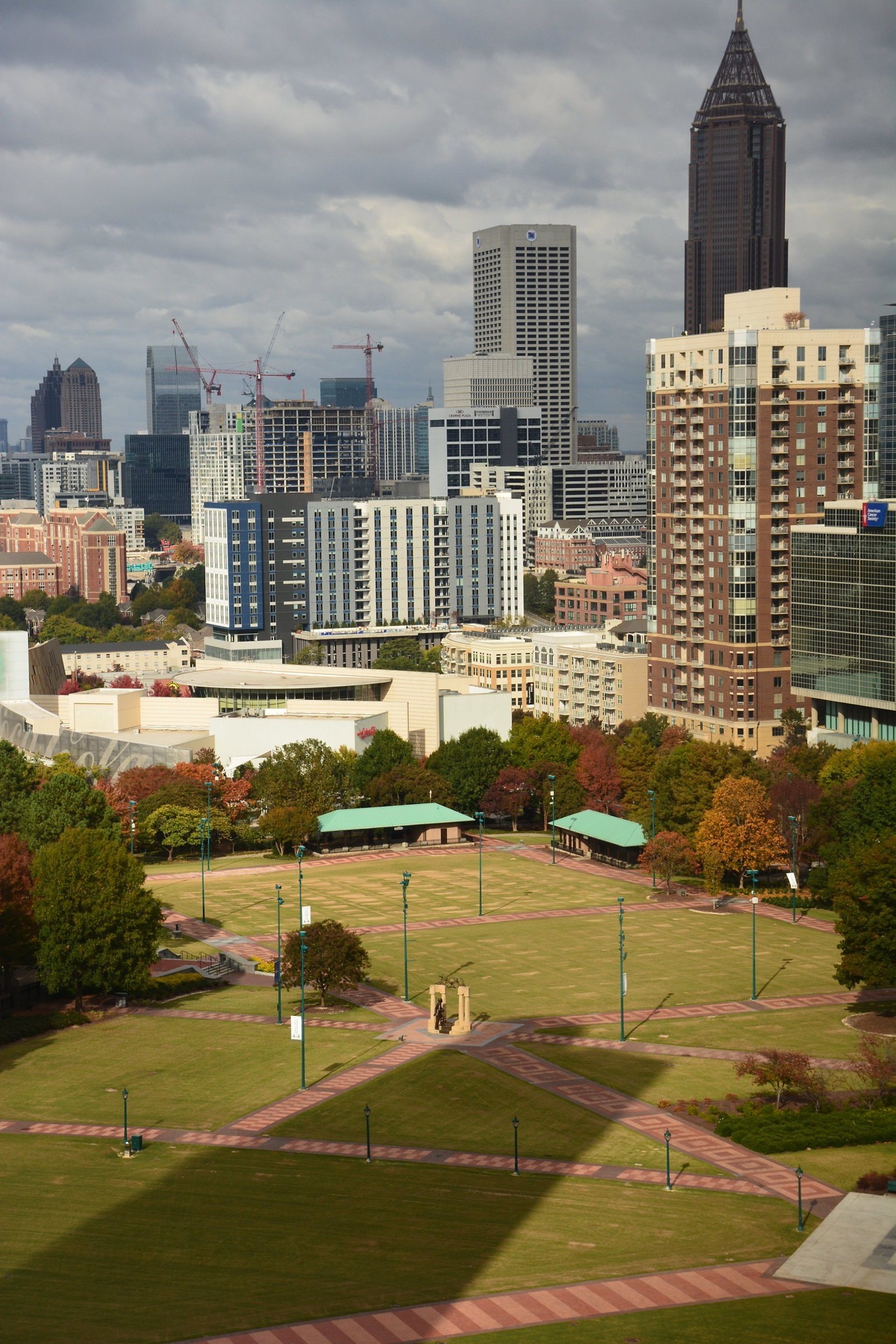
Present-Day Businesses and the Evolving Identity of Little Five Points
Little Five Points today functions as an eclectic alternative business district, made of independent retailers, vintage shops, small restaurants, and performance venues. The colorful building facades, distinctive signage, and expressive public art reflects both its commercial diversity and its long-standing association with creative and countercultural communities. Frequented by a mix of musicians, artists, tourists, and self-identified nonconformists, the neighborhood has undergone a gradual transition from its early 20th-century role as a suburban shopping district for middle-class Atlantans to a contemporary hub for youth-oriented, alternative culture and continue to sustain its identity in independent ownership and expressive public space.
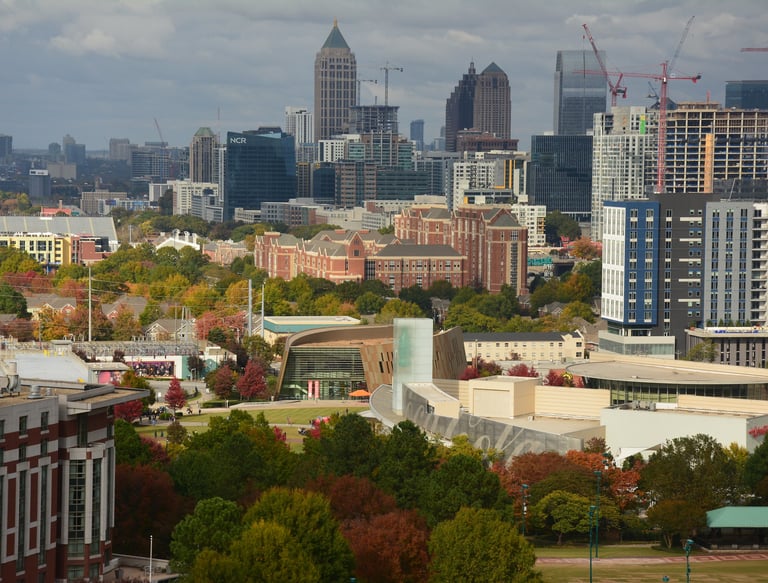

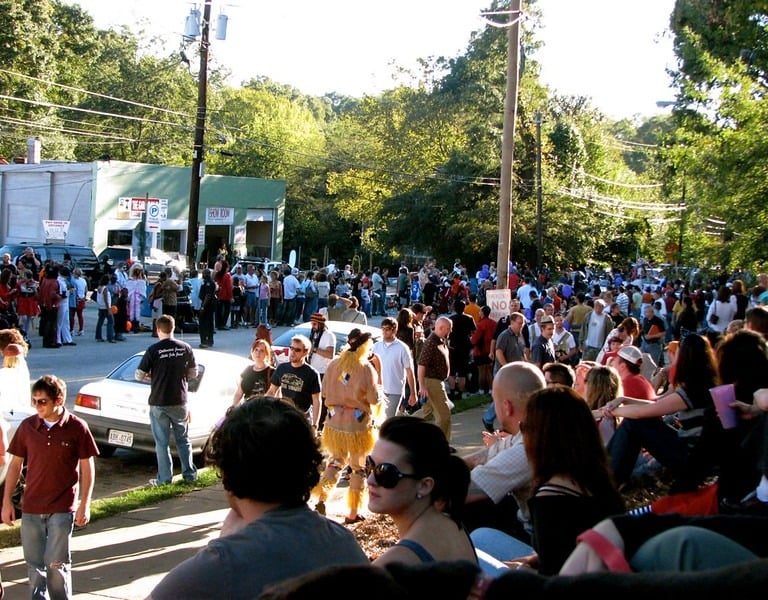

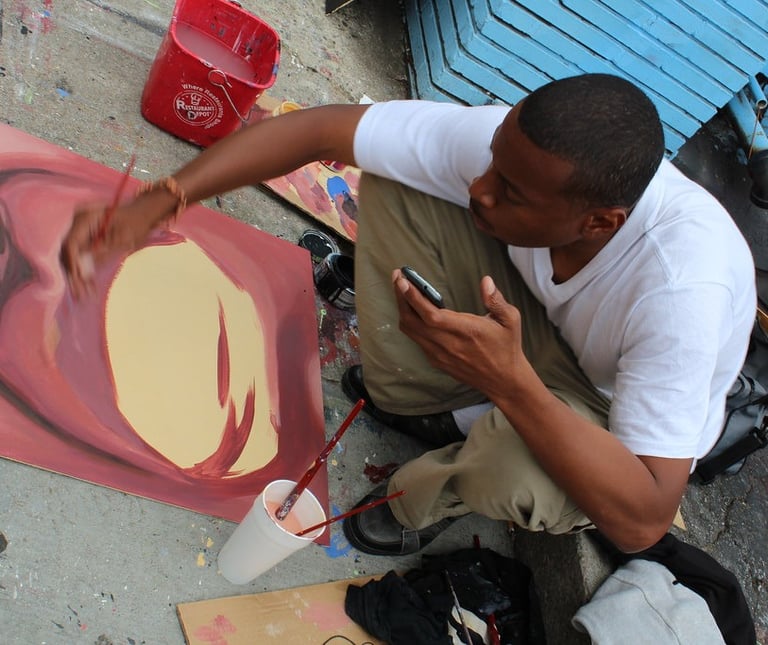

Mission
The Little Five Points Community Pub, which opened in 1977, was created as a space where neighbors could gather for live music, poetry readings, theater presentations, and discussions about local politics. “We had high-minded principles that we really put into practice,” explained co-founder Kelly Jordan. “The pub wanted employees to be part of running the place and we had larger, societal issues, like bringing in health care and things that would serve people.”
Anthony Reyes, CC BY-ND 2.0, via Flickr
Jeff Gun, CC BY 2.0, via Flickr
Rachel Chapdelaine, CC BY 2.0, via Flickr


Performance, Protest, and Place
Little Five Points Theater was completed c.1930 then in 1979, the 7 Stages Theater was established. 7 Stages has since served as a platform for artists to explore contemporary social, political, and ethical issues through performance, producing over 80 world premieres and earning national recognition for its work. The theatre’s programming consistently engages with pressing global and local topics, including public health, technological ethics, and the intersections of race, gender, and religion. Its productions are frequently recognized among the best in Atlanta by publications such as Creative Loafing, Atlanta Magazine, and The Atlanta Journal-Constitution, and it has earned national recognition from institutions like the Drama League of New York ("Little 5 Points").
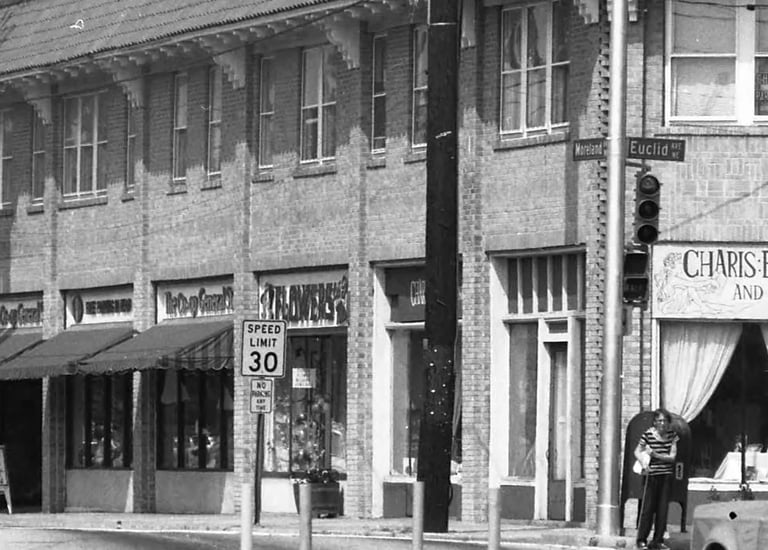

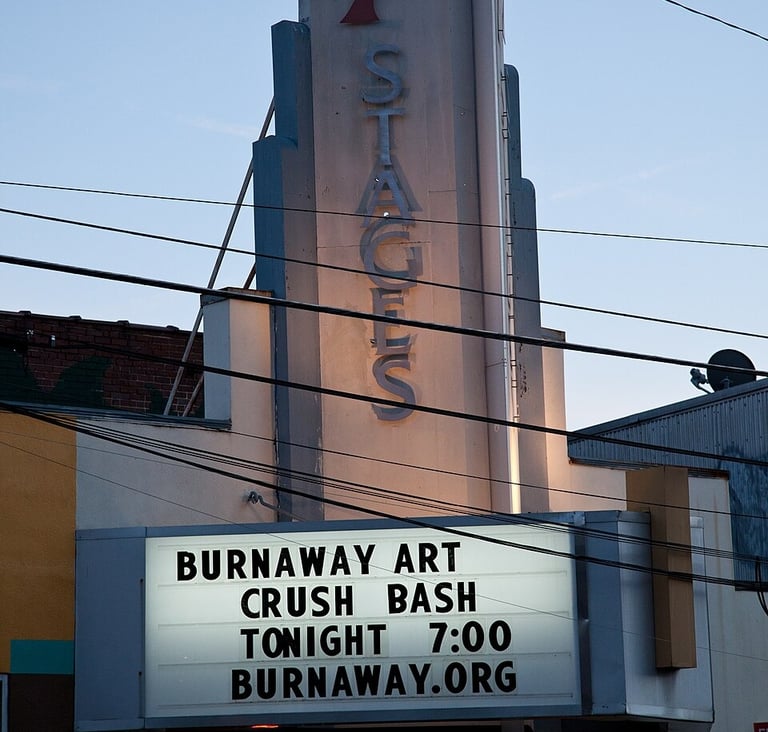

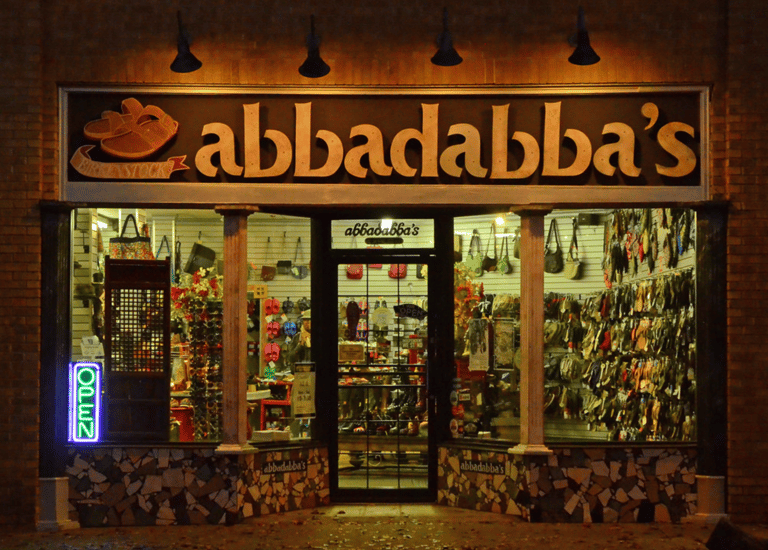

Retail Continuity in the Point Center Building
The Point Center building (left), constructed in 1925 along a former trolley line, has housed multiple businesses central to this identity, including Charis Books and More and Abbadabba’s. Charis Books, founded by Linda Bryant in 1974 at the age of 25, was located adjacent to The Broken Wall community center and functioned as a space for collective engagement and social consciousness. Bryant’s involvement with Young Life, a religious organization focused on social justice and student outreach at Bass High School and Moreland Elementary, informed the bookstore’s community-oriented mission (Kueppers). Abbadabba’s opened in the same building in 1981, and remains in operation today, has initially operated as a small shop offering toys, gifts, and jewelry, with a limited selection of unconventional footwear in the back ("Little 5 Points").
BurnAway, CC BY 2.0, via Wikimedia Commons
David Reed, CC BY 2.0, via Flickr
GSU Digital Collections, CC BY 2.0
GSU Special Collections, CC BY 2.0
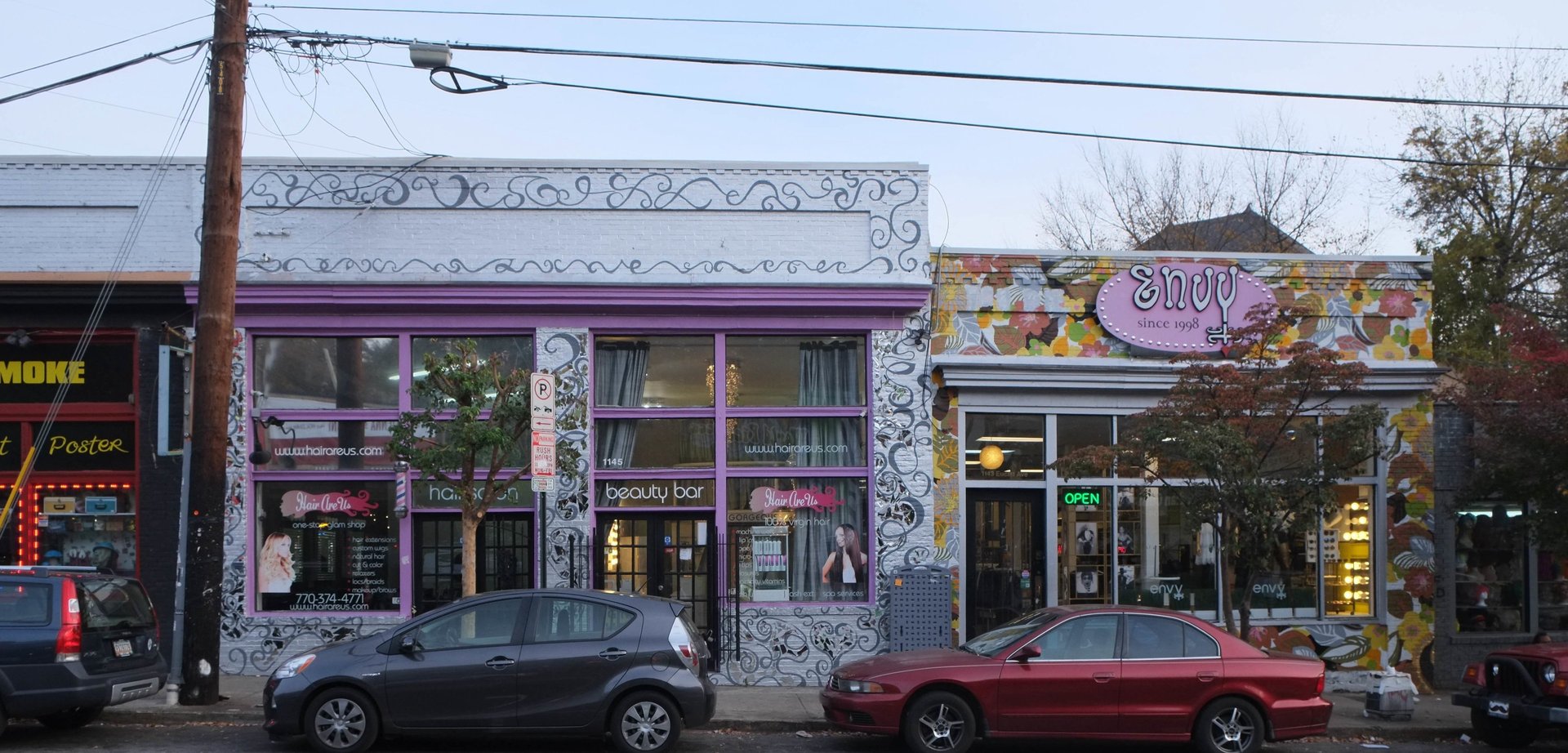
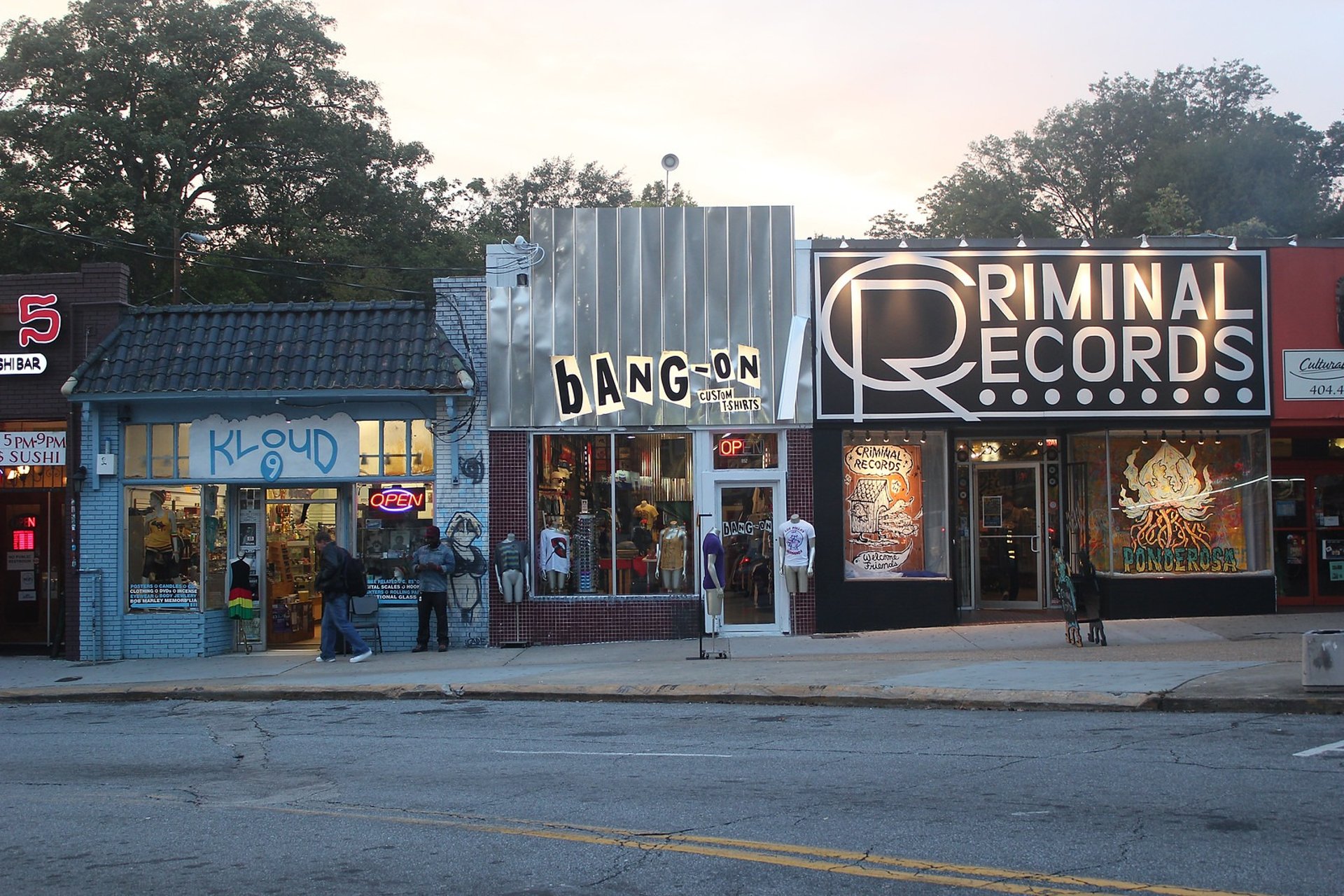
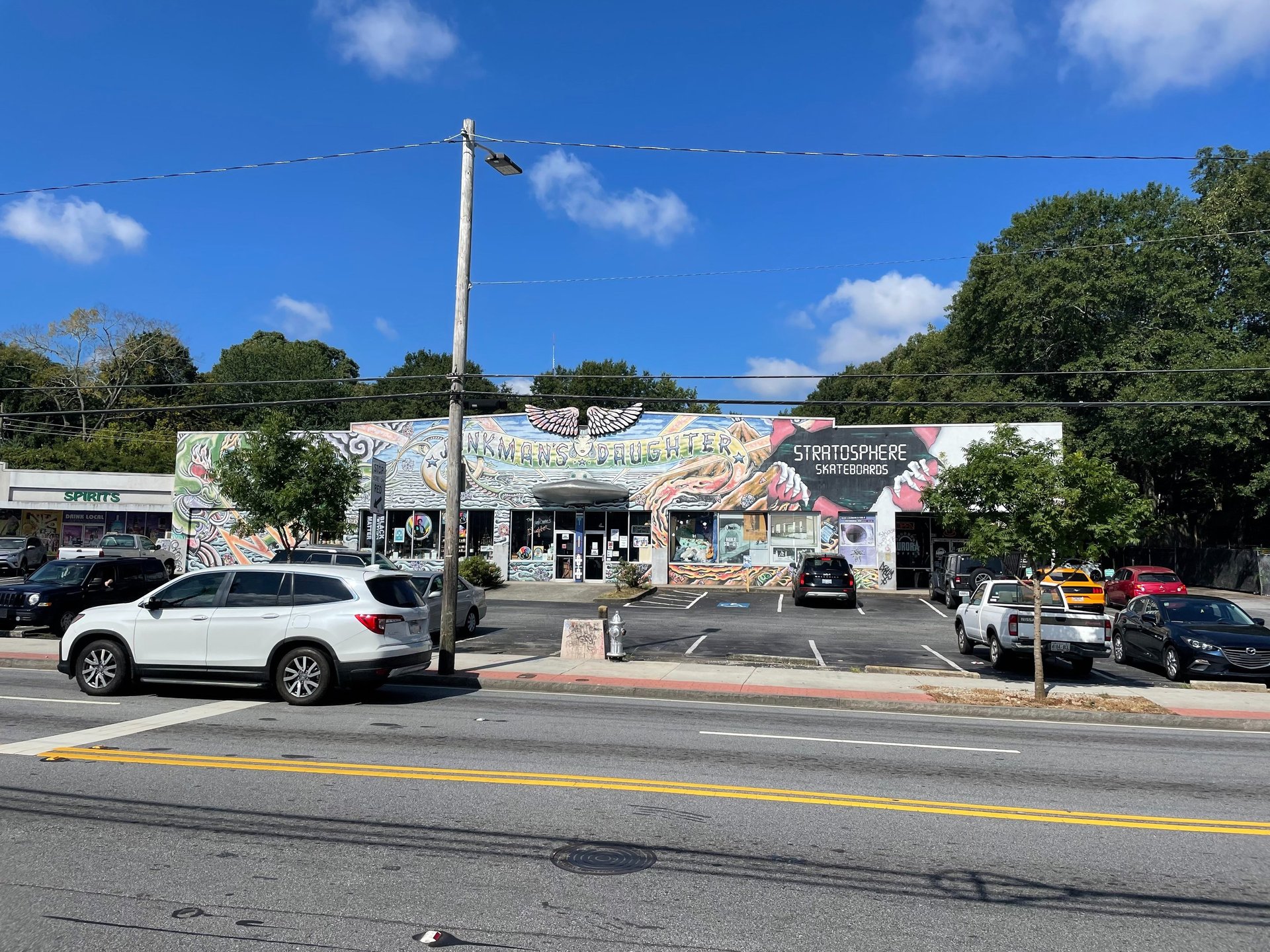
Paul Sableman, CC BY 2.0, via Flickr
Natalie Marchant , CC BY-NC 2.0, via Flickr
Tyler Lahti, CC BY-SA 4.0, via Wikimedia Commons
Tiffany Jin